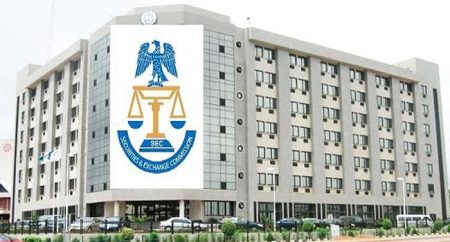The Nigerian Federal Government has emphasized the critical role of quality internet access in achieving its ambitious goal of a ₦1 trillion digital economy. Recognizing the transformative power of digital technologies, the government views widespread, affordable, and reliable internet connectivity as the bedrock upon which a robust digital economy can be built. This digital push aims to leverage technology to diversify the Nigerian economy, create new jobs, enhance productivity, and improve the overall quality of life for citizens. Achieving this vision requires a concerted effort to address the existing challenges hindering internet penetration and quality, including infrastructure gaps, affordability concerns, and digital literacy disparities.
The government’s strategy for realizing this digital economy hinges on several key pillars. Firstly, it recognizes the need for significant investment in expanding and upgrading digital infrastructure. This includes deploying fibre optic cables across the nation, promoting the rollout of 5G networks, and ensuring last-mile connectivity to underserved areas. Secondly, bridging the digital divide requires addressing the affordability barrier faced by many Nigerians. Efforts are being made to encourage competition among internet service providers, promote innovative pricing models, and explore subsidies for low-income households. Thirdly, promoting digital literacy is crucial. Equipping citizens with the necessary skills to utilize online resources effectively will empower them to participate fully in the digital economy. This includes initiatives targeting schools, communities, and specific demographics.
Beyond infrastructure and access, the government is focused on creating an enabling environment for digital businesses to thrive. This includes streamlining regulations, promoting innovation hubs, and providing financial support for tech startups. Recognizing the importance of data security and privacy in fostering trust in the digital ecosystem, robust cybersecurity frameworks and data protection policies are being developed. Furthermore, the government seeks to leverage digital technologies to improve public service delivery in areas such as healthcare, education, and governance. Online platforms are being implemented to streamline processes, enhance transparency, and improve citizen engagement.
The potential impact of a thriving digital economy on Nigeria is substantial. Increased internet penetration can unlock new opportunities for entrepreneurship, particularly in areas like e-commerce, fintech, and digital content creation. This can lead to significant job creation, particularly for the youth population. Moreover, enhanced connectivity can boost productivity across various sectors, from agriculture to manufacturing, by enabling access to information, markets, and innovative technologies. Improved access to online education and healthcare can also contribute to raising living standards and reducing inequalities.
However, realizing the full potential of the digital economy requires overcoming various challenges. These include addressing the skills gap in the ICT sector, overcoming infrastructural hurdles in remote and underserved areas, and promoting digital literacy among diverse population groups. Ensuring a secure and trustworthy online environment is also crucial to building public confidence and attracting investment. Collaboration between the government, private sector, and civil society is essential to address these challenges effectively and create a vibrant digital ecosystem.
The Nigerian government’s aspiration for a ₦1 trillion digital economy signifies a strong commitment to leveraging technology for national development. By focusing on expanding internet access, promoting digital literacy, creating an enabling environment for digital businesses, and addressing the existing challenges, the government aims to unlock the vast potential of the digital economy to transform Nigeria’s economic landscape, create jobs, and improve the lives of its citizens. The success of this ambitious endeavor will depend on sustained commitment, strategic investments, effective policies, and strong collaboration among all stakeholders.














